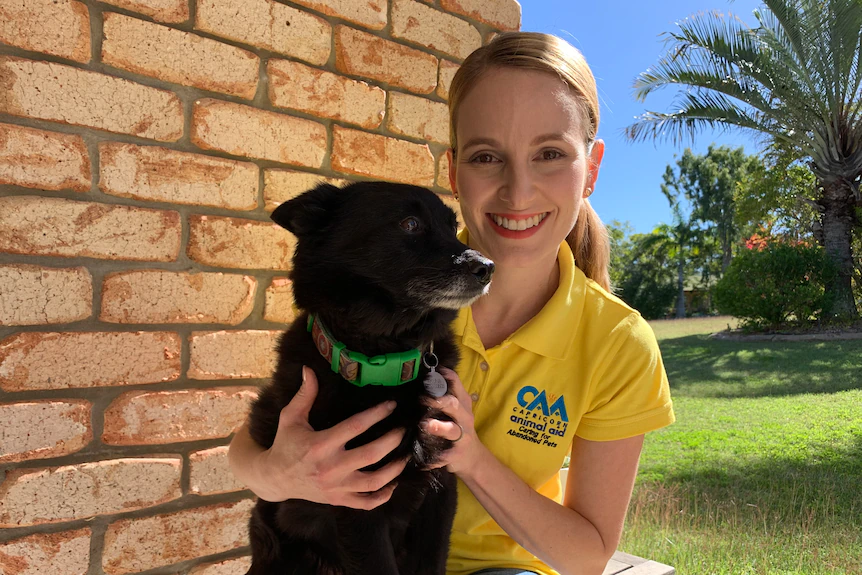
Adopting a dog from an animal shelter is a good option if you don’t intend to breed purebred dogs or exhibit at an exhibition but still want a pet to live with. This method of adopting a pet is not for everyone. Let’s examine them more closely.
Prepare yourself and your family for the decision to adopt a dog from a shelter before you make that final step. An animal needs your full attention and time. He must be walked and trained regularly, and monitored for any health issues.
You need to learn all you can about how to make your dog’s life happy. We will then discuss the main factors that will assist you in making the right decision.
There are pros and cons to any decision, whether you are looking for an adult dog or a puppy. This is a personal decision that will require careful consideration and a thorough assessment of all the options available to you.
Adopting a dog from an animal shelter is a great way to get the best out of your pet.

- This can bring great joy.
- Adult dogs can be trained to walk and use the toilet on the streets.
- Basic commands can be taught to adult pets.
Adopting a dog from an animal shelter can be difficult.
- It is hard to predict how big a mestizo puppy will be when it grows up.
- Shelter animals may sometimes have behavioral issues.
- Dogs may not have been taught basic obedience or developed undesirable behavior.
How to begin and where to go

If you are looking for a shelter to adopt a puppy, you should first look around. You should also consider the living conditions of the pets: are they in a crowded shelter? Does the shelter have heated enclosures? Do the animals get regular visits from the veterinarian? You can read reviews about shelters online or speak to people who have taken pets there.
After you’ve chosen the shelter that is right for your dog, make sure to return several times. You will most likely find a dog you like and want to adopt. You should take your time when choosing a shelter animal.
Ask the staff at the shelter about your animal. They will ask about his personality, past, habits, and other features. It is not necessary to ask about his health. Do they have sterilization or vaccination? Are there other important things you should be aware of? Get to know your animal. Do not try to win his trust immediately.
Once you have confirmed that the animal is yours and are happy with it, go ahead with the formalities. The formalities will require you to provide details about yourself and your life, as well as the location your pet will live in. All serious organizations also sign an agreement with their future owners.
It states that you will monitor the animal’s health, inform the shelter within the first few months of its condition, and sterilize it if necessary. If you realize you are not compatible with each other, you will be asked to return the animal.
Which one should you take? A puppy or an adult dog

There is no one answer to the question of what pet is best: a puppy or an older dog. Each case is different and each one has its pros and disadvantages. It all depends on your time and willingness to dedicate it.
First, shelters usually have fewer dogs than adult pets. Second, it is accepted that a puppy can always be raised by you at your discretion. He is not subject to trauma (such as a bad owner, street life, etc.). It is possible that while the puppy was raised responsibly, the genes were passed on to him from his parents. This is because outbred dogs are unpredictable and not like thoroughbreds.
You must understand that your puppy will need all of your attention. He may have to learn to not damage furniture or go outside to use the toilet.
Independence is a major advantage of an adult animal. As an adult animal, you will know how to communicate with people and can understand basic commands.
Adult pets don’t end up in shelters simply because they have lived happy life. A past owner could have neglected to care for the animal or even abused it by being a nuisance. A dog’s experience with stress while living on the streets can affect its character.
An injured animal will need more attention than a puppy. You will need to work hard to gain his trust and locate him.
These are some important tips for anyone who wants to adopt a dog from an animal shelter

It is essential to spend time with the animal before you take him home. You can visit your dog several times and ask for permission to take him on walks. You must keep your dog on the leash. Shelter workers and you should control the dog’s movements. If you can, allow the dog to go into your car so that you can observe how it behaves in different situations.
The center staff is familiar with the characteristics of the animals they take care of and can help you select a pet. They are also available to answer any questions you may have to get a better understanding of the dog. Take, for example:
- What is the age of the animal?
- Do we know the details of our past lives?
- What is the typical behavior of the dog? Is he afraid or happy with his surroundings?
- What is her reaction to children and other animals?
- What is her response to different situations?
- Is it possible to leave this dog alone?
What are some questions you should ask the shelter owner?

It is a noble and thoughtful decision to adopt a dog from a shelter. There are both state-supported organizations and private ones that are supported by the state.
Shelters need volunteers. Volunteers help to feed, clean up, and train the animals. A veterinarian visits the shelter and stays there permanently to examine, treat, and draw up a plan for vaccinations or antiparasitic treatment. Once all members of your family support you in adopting a shelter dog, you can then start looking for a pet. You must first limit your search to your preferences. This includes the size, type, and color of the pet, as well as the desired coat, color, and age. While you may end up choosing another candidate during the search, it is best to choose the person you really want.
The shelter owner must prepare the pet for the move to a new home before he can transfer him. The shelter owner must ensure that the pet is healthy and spayed. Even after all this preparation, the pet’s new owner might have difficulty adapting to a new environment.
It is a good idea to ask questions to the shelter’s employees or owners to get a better understanding of your chosen pet. It is not easy to find a dog that fulfills all your needs. The internal data may not always match external data.
It is important to ask whether it is possible to determine which breed is found in a specific mestizo. This question can sometimes be answered by a veterinarian or dog handler, but it is not always possible. Knowing which breeds were the ancestors for a candidate is a good way to get a better idea of his character, temperament, and features.
What is the story of the dog that ended up at the shelter?
It could be a trash that was given away by its previous owners. We must find out why. You must ensure that the dog is not being sought after by anyone, even if he is a “foundling”. Was the dog taken from its owners because of poor conditions? Did the dog get bullied?
Dog Health Issues

Which diseases are her pets most susceptible to? Are there any injuries? It was sterilized. Which vaccinations was she given and when? What was the antiparasitic treatment? It is important to determine if an animal is currently being treated and what drugs were administered. If it has a chronic condition, it is also necessary to figure out how to keep it healthy in the future.
Questions about her physical condition
How heavy is the dog’s current physical load? Is it sufficient at the moment for her needs? What is her behavior on walks? Does she enjoy playing and communicating with family members? What are her habits?
Questions about feeding
What do they feed the dog? The food they are eating and how often. Appetite. Some dogs are picky or small. She may be unable to control how much food she eats so she must limit her intake. What kind of special diet do I need to follow for my health?
Questions about dog socialization and obedience skills
What are the animal’s habits and temperament? Does the animal exhibit aggression? What is his reaction to cars, loud noises, strangers, dogs, and other urban environments? What were the problems faced by volunteers when training and raising dogs? What skills did she not learn, and what were her fears? Are her accustomed to travelling by car or in public transport? What is her approach to children? What commands does he know and what is his nickname?
Even if you have received all the information and made sure that your dog is obedient and adequate, you shouldn’t relax. Even a trained animal can feel insecure in unfamiliar surroundings. The dog is still learning. You should not let your dog off the leash immediately or allow her to walk with children. It is important to continue to train and educate her. This will make it easier for everyone to avoid addiction. A specialist dog handler is the best option for assisting with the adaptation of a new dog to the home. For the owner as well as the dog, the stress of having a dog in the home is a source of stress.
You will find it easier for all members of your family to get to know the dog you have chosen.
A shelter dog appears in your house

- Prepare food before you bring your dog home. (For the first time, it is best to use the food the dog received at the shelter. Later, you can slowly switch to a different one that considers age and other characteristics.) Toys, toys, a collar, and a place for the dog to sleep. Eliminate potential stressors. To ensure that your dog doesn’t get hurt, keep valuable objects away. Sharp and other objects that could cause injury to the dog should also be kept hidden.
- Take the animal to the vet. A complete medical exam is not necessary, even though dogs have been vaccinated and neutered.
- Be calm and careful when your dog enters your home. Allow your dog to explore the new territory and to get to know you over the next few days.
- Be sure to keep an eye on your children. Children under the age of 6 years old should not be allowed to play with dogs without adult supervision.
- Introduce your dog gradually to other pets in the home. You should slowly introduce your dog to other dogs.
- Don’t over-pamper your dog. People feel sorry for shelter dogs, and want to make them feel at home in their new homes. They can also over-pamper the dog which can lead to unwanted behaviors and future problems. Dogs need to be taught clear rules that will prevent stress and avoid him being confused in situations that are not understandable.
- Be patient during training. When your dog is comfortable with his home environment, you can start teaching him how to behave on the streets. To prevent your dog from running away, keep him on a leash. Establish daily routines. You should leave your dog at home and not stress it out. Do not excite your dog, make it less excited, and keep your voice calm.
- Do not ignore aggressive behavior from your dog. This behavior problem can be eliminated by a simple growl. You can correct bad behavior by responding quickly and consistently to it. This can be done by working with a professional trainer. You will be unable to recognize the signs of aggression in your animal and it will only get worse.
Adopting a dog from shelter is a significant commitment. It is important to carefully consider the details before you make this decision. If you are able to consider your options, it will be worth it.